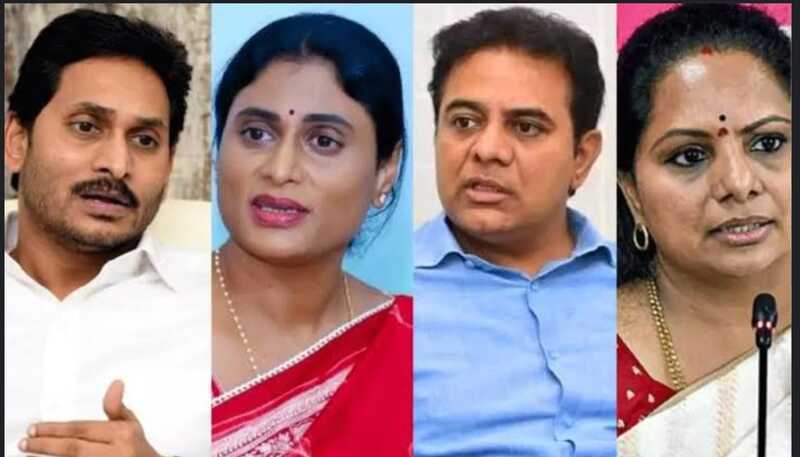Family Feuds Shake Telugu Politics
Article Today, Hyderabad:
The famous communist thinker Karl Marx once said that all human relationships are economic in nature. That truth seems to be playing out in today’s political world, where money and power take precedence even over blood relations. The ongoing rift between BRS MLC K. Kavitha and her father K. Chandrashekar Rao (KCR), as well as the clash between Andhra Pradesh CM Y.S. Jagan Mohan Reddy and his sister Y.S. Sharmila, are prime examples. Family ties appear to crumble when wealth and authority come into question.
Kavitha vs KTR – A Family Power Struggle
The tension between Kavitha and her brother K.T. Rama Rao (KTR) has become a hot topic in Telangana politics. Allegations are flying that their feud is rooted in a massive property dispute. Reports suggest that KTR holds control over assets worth thousands of crores, both within India and abroad. Kavitha is reportedly demanding her rightful share—allegedly 50 percent—of wealth amassed during the decade-long BRS rule.
Whispers in political circles hint at diamonds locked in Dubai banks, sprawling farmhouses, and huge commissions from contractors. There are also accusations that secret deals with foreign firms in Malaysia and the US contributed to the family’s hidden wealth. The fight is no longer just about party roles—it’s about who owns what in a political empire built over years.
Jagan Vs Sharmila – Another Tale of Broken Bonds
A similar story unfolded in Andhra Pradesh. Despite Y.S. Sharmila’s efforts to keep the YSR legacy alive while Jagan was in jail, she found herself sidelined after his rise to power. Eventually, she joined Congress, distancing herself from the YSR Congress Party. Analysts believe disputes over property and lack of political recognition were at the heart of their fallout. Like the BRS siblings, their conflict seems driven more by power and wealth than ideology or public service.
Past Lessons – NTR, Chandrababu, and the Pattern of Betrayal
The Kavitha-KTR and Jagan-Sharmila clashes echo older betrayals in Telugu politics. In the 1990s, Chandrababu Naidu famously ousted his father-in-law N.T. Rama Rao to seize control of the Telugu Desam Party. Critics still call it a political backstab. Similarly, in Uttar Pradesh, Akhilesh Yadav took the reins of the Samajwadi Party by pushing aside his own father, Mulayam Singh Yadav.
Such examples underline a grim reality: in Indian politics, family bonds are often sacrificed at the altar of power. These are not isolated events but part of a growing trend where relationships matter less than wealth and political dominance. Some countries have even seen murders within political families over property feuds. In this capitalist age, power struggles and asset battles seem to have overtaken any higher ideals of service or sacrifice.
Where Is the Morality in Politics?
The current political climate in the Telugu states raises serious ethical questions. If leaders cannot maintain respect within their own families, how can they be trusted to serve the public with honesty and integrity? What we are witnessing is not just political drama but a deep moral crisis.
Kavitha’s recent demands for accountability over Nayeem’s assets, missing diamonds, and unexplained wealth only reinforce the argument that today’s politics is driven by personal gain. There’s little sign of public service, no real ideology, and certainly no commitment to values.
A Warning for Democracy
These developments suggest that politics has become a mere game of thrones—where family, ethics, and public responsibility are cast aside for the sake of power and property. The people of Telangana and Andhra Pradesh must now ask: if leaders cannot keep their own house in order, how will they govern ours?
The growing distrust in leadership is not just about individuals—it’s about the very foundations of democracy and the role of ethics in governance. When personal ambition overshadows public good, it’s the people who suffer the most.



